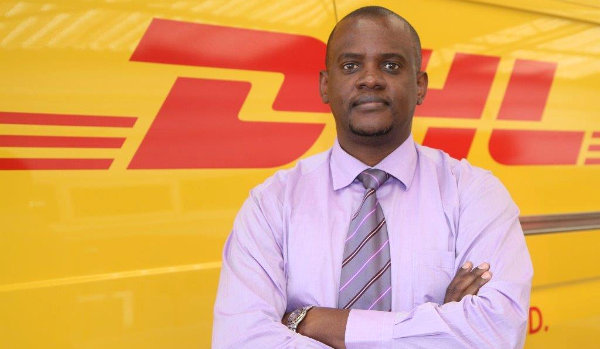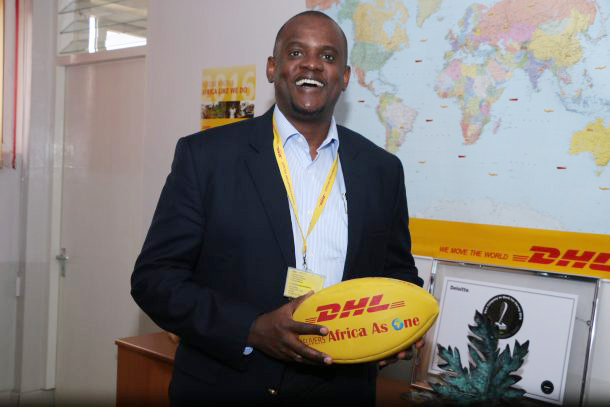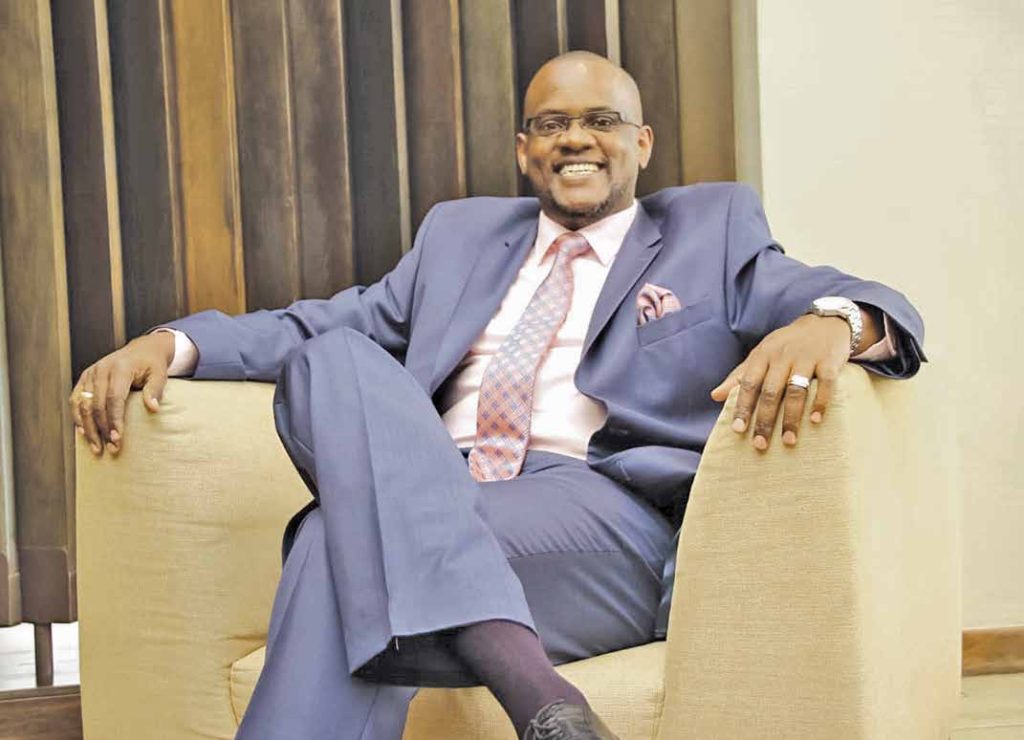#13
Andrew Mutuma
MD & CEO – DHL EXPRESS KENYA
Logistics Companies have played not only a critical but an essential role, during this Covid-19 pandemic. Whether delivering essential Personal Protective Equipment (PPE) around the world or supporting small- and medium-sized enterprises (SMEs) as they adapt their business operations, the logistics sector has helped ensure the global flow of goods and has provided an essential service for our society during this unique time in our history.
Now more than ever, the pandemic has highlighted this need for connection, underlining our reliance and dependence on technology to keep the economy moving. It has also demanded agility and, with over 40 years of experience in implementing contingency plans in Kenya since its establishment, DHL Express Kenya has been able to respond quickly, making the necessary adjustments to minimise impact to our customers.
I could not have envisaged the number of challenges that we would face. However, our staff in the organization have demonstrated their resilience and have remained very positive during this season. Without them, we would not have had the business continuity we have experienced throughout the year. They have been sure and steadfast, and I am proud to be their colleague as we have remained dependable and in the frontline during this pandemic. Indeed, teamwork is dream work.
DHL Express Kenya works in an environment where there is constant dissemination and flow of information and additionally, a labour intensive operational environment. Our work in ensuring optimal deliveries is guided by strict timelines in which we have to adhere to strict instructions and timelines that include pick-ups and deliveries.

We are therefore well prepared for the shift in demand, particularly, owing to the many requests of getting personal protection equipment available to health workers, and also the general populace, to ensure the effective implementation and observance of the strict health guidelines provided by both the World Health Organization (WHO), and the Government of Kenya.
The safety of our employees and customers has been of utmost importance and continues to remain paramount. In order to closely monitor and manage the Corona SAR-2 virus outbreak, a Deutsche Post DHL Group task force was established, led by the Group’s CEO Frank Appel who sits in the global office based in Germany. The Group’s task force coordinates with international organizations (such as the WHO, CDC, ECDC and Robert Koch Institute) and provides the necessary information to all employees and relevant operations in the regions and countries we operate.
One of the major challenges that we faced, was the Commercial flights being halted and which are a critical part of our operations in ensuring a continuous supply chain. However, this was countered by the fact that DHL Express are the only logistics company operating own flights out of Africa, with 14 dedicated aircrafts in strategic locations within Africa.
As in 2020 and more so, now in 2021, this comes in handy when access to commercial flights is significantly reduced or non-existent in some countries. Consequently, we will use these flights to add more routes and more rotations where absolutely no cargo capacity is available or where airlines will not be operating at all.

DHL priority remains the customers in ensuring that they have a reliable service and great customer experience. If a customer’s shipment is, for instance, rerouted or the delivery is subject to a delay due to the Covid-19 pandemic, we work closely with our customer to determine the best course of action for any affected shipments.
DHL Express has also initiated dedicated charter flights from Bahrain into Johannesburg and also created a new routing for material from Asia and Europe via Bahrain and Nairobi to move material to and from Southern Africa in the initial lock down period in South Africa where there was virtually no commercial cargo capacity available. As a result, we implemented contingency planning to mitigate any impact to our customer’s consignments.
In Kenya, we are currently using a Boeing 767- 300, with a capacity of 56 tonnes. It operates daily from Bahrain.
If recovery from this pandemic offers an opportunity to reset our ways of working, this would be an opportune time to bring the essential role of logistics to the forefront of everyone’s minds. Without the agility, flexibility and efficiency of essential service providers, we would be facing a radically different situation in terms of supporting those who need it most. “For DHL our operations have begun to run smoothly. Essentially our business has continued to grow stronger in this Covid-19 pandemic period,” Mutuma notes.

Despite the easing of travel restrictions in several countries, most airlines are running a fraction of their usual routes and the industry does not expect to return to pre-pandemic levels until at least 2023.
Mutuma, however, says the firm which operates in 52 African countries and 220 countries globally has seen its business more than double benefiting from an increase in e-commerce business as a result of a boom in online shopping during lock-downs.
Kenya imports a wide range of goods from China and other countries with electronics like mobile phones topping shipment orders that also include clothing, kitchenware, furniture, machinery, optical and medical equipment.
Mutuma admits that the windfall from Covid-19 is not certainly permanent, hence the firm is looking ahead by laying down strategies to ensure it continues to thrive beyond the medium term. These include digitizing its processes and enhancing turnaround times for deliveries.
“Covid-19 pandemic is not forever. You have to strike that balance in terms of what we need now and we go to normal services,” he says
Mutuma adds the rise of e-commerce and increased competition are driving demand for real-time supply chain visibility, which is the reason DHL is investing in the technology. “What we are doing is to focus more on digitalization,” he says.
In April, digital freight forwarder, a subsidiary of Deutsche Post DHL Express launched a new digital road freight platform for shippers and transport providers along the Northern Corridor.
The service is available for cargo movement within Kenya as well as to and from its neighbouring countries of Uganda, Somalia, Rwanda, and South Sudan which mostly depend on the port of Mombasa for their imports and exports.
Persistent, tenacious, focused and value driven are some of the words that can best describe Andrew Mutuma, who sits at the helm of the Kenya operations.
As a recommendation for his appointment to the position in 2015, former DHL’s Managing Director for sub-Saharan Africa Charles Brewer stated that ‘’Mutuma’s wealth of experience in general management, sales and marketing would be a great asset to DHL Express and I am confident that Mutuma will move the DHL brand to new heights in the Kenyan market.’’ Brewer’s words have since come to fruition.
In the five and a half years that he has held the position, Mutuma has registered growth of cash flow by 2,000% in 4 years, met and surpassed Earnings Before Interests and Taxes (EBIT) four years in a row and is optimistic about what the future abounds.
CITATION
- Global Branding
- International Marketing
- E-Commerce
- Team Leadership
- Logistics
- Brand Equity Management
















